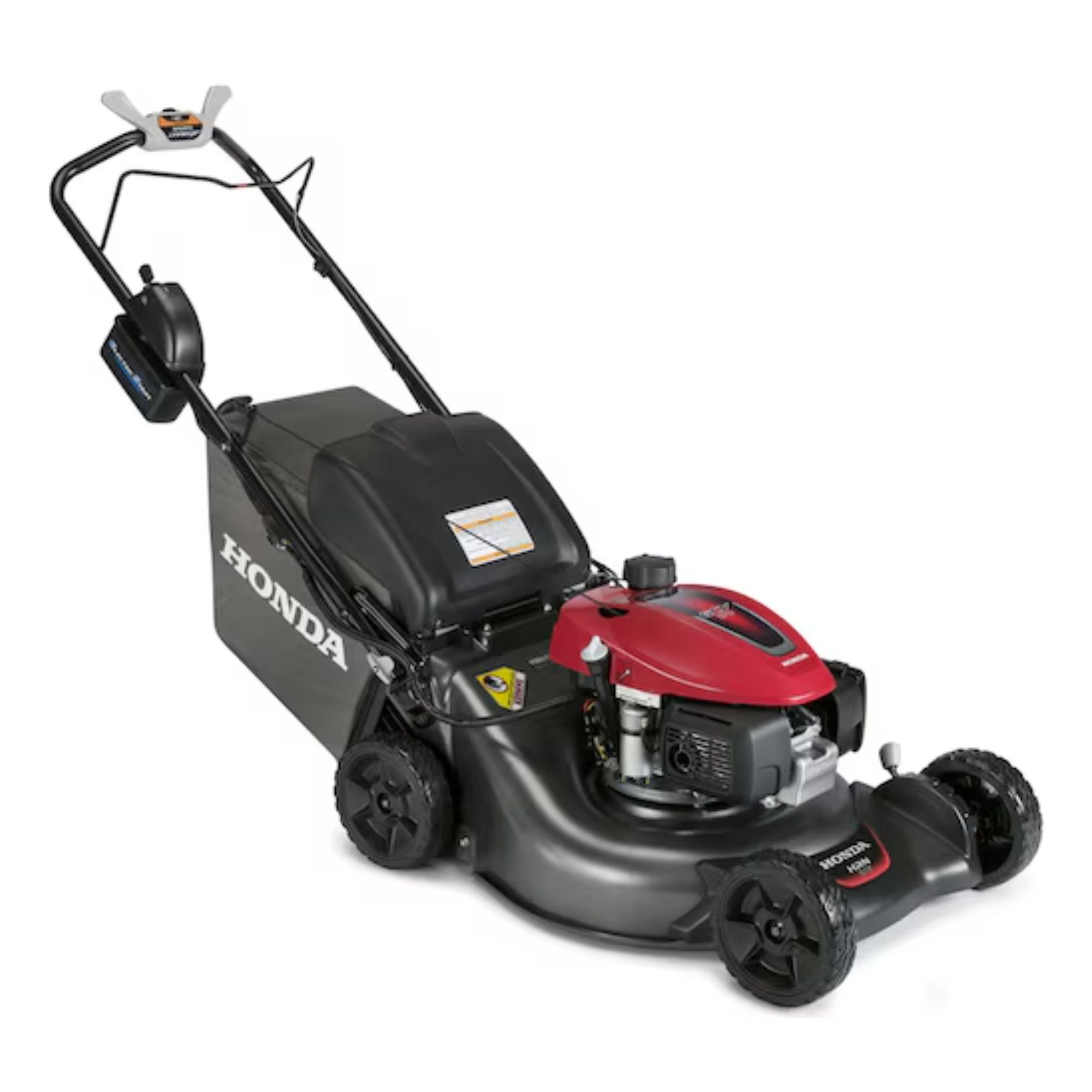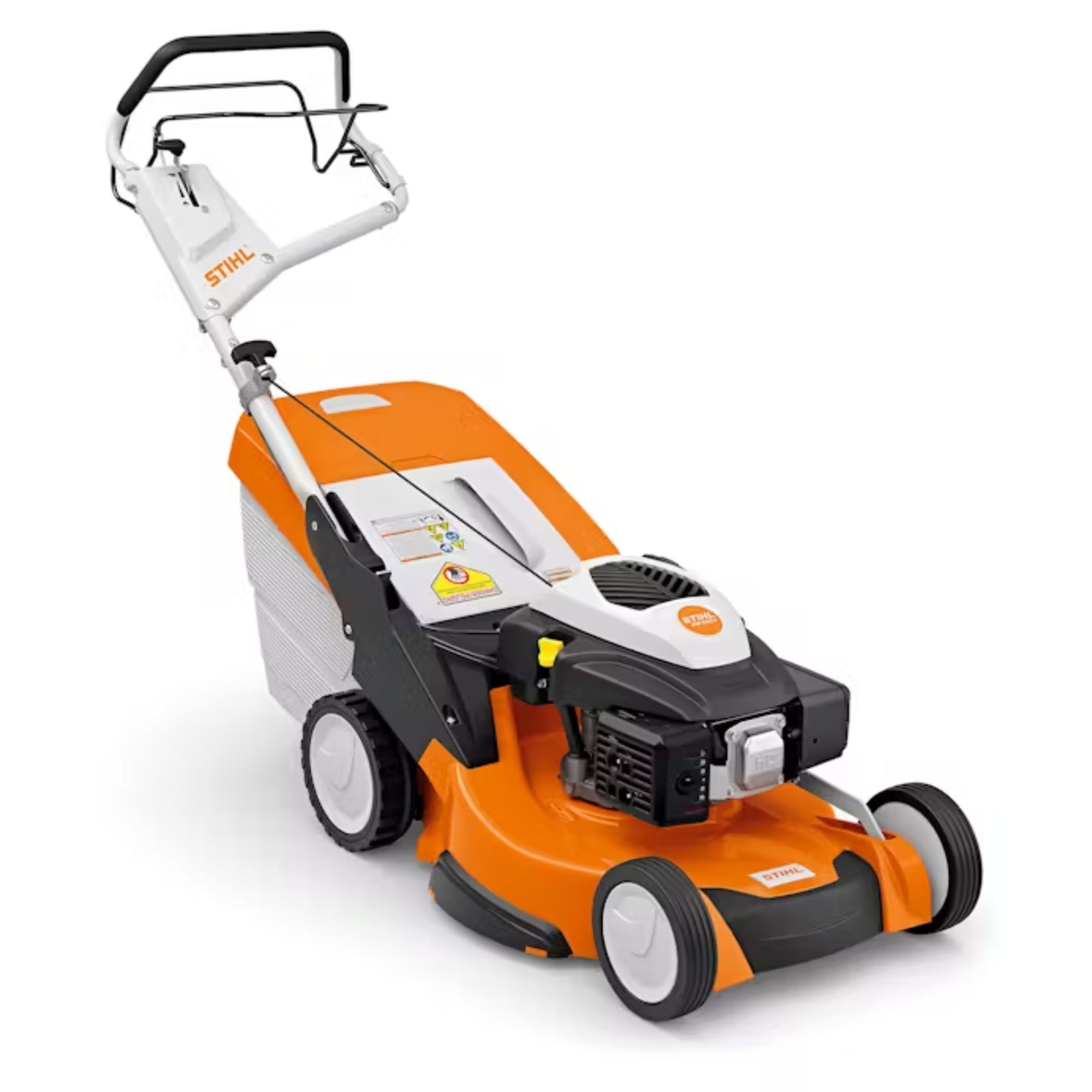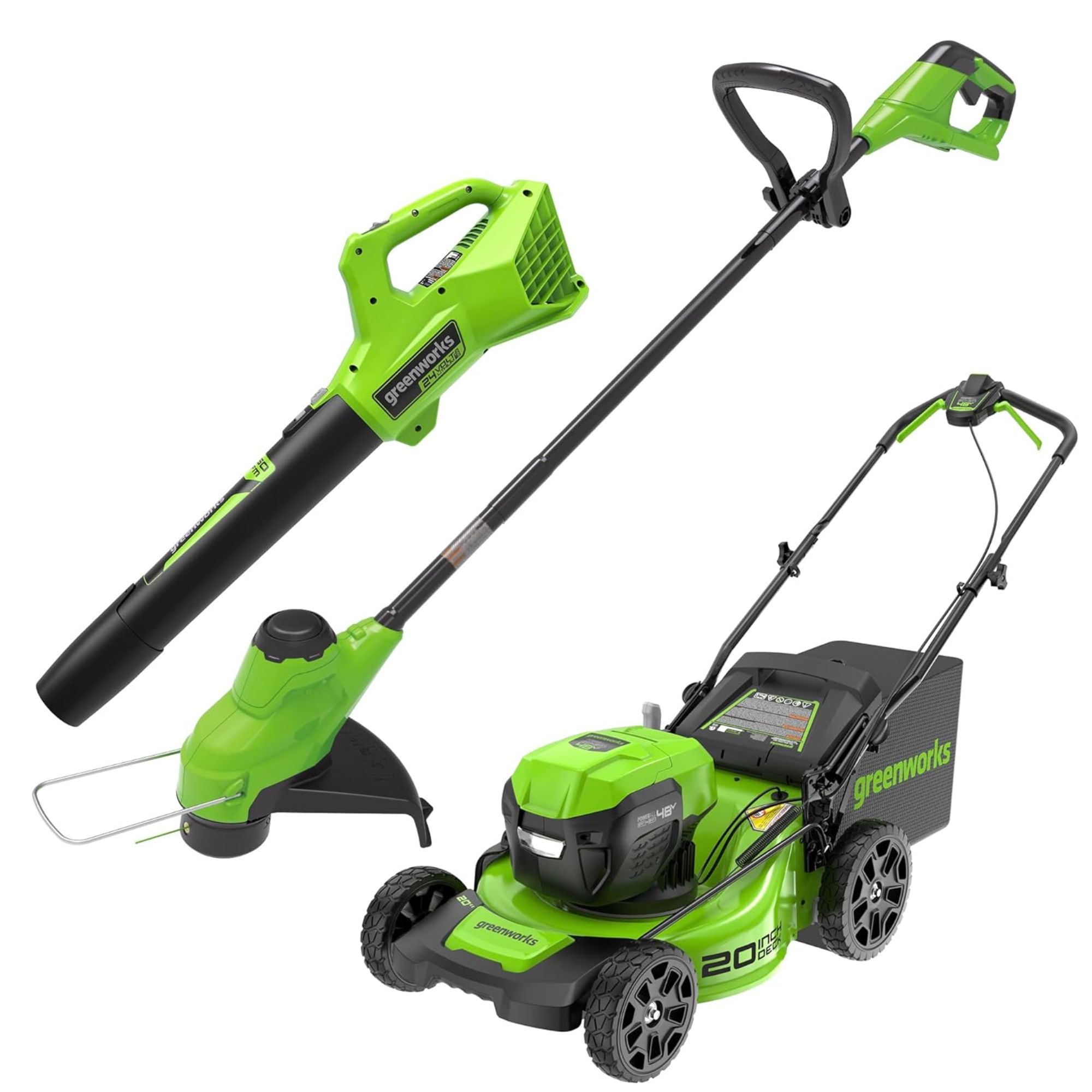Gas mower vs cordless mower: experts pick the very best
This is how to pick between a gas mower vs cordless mower

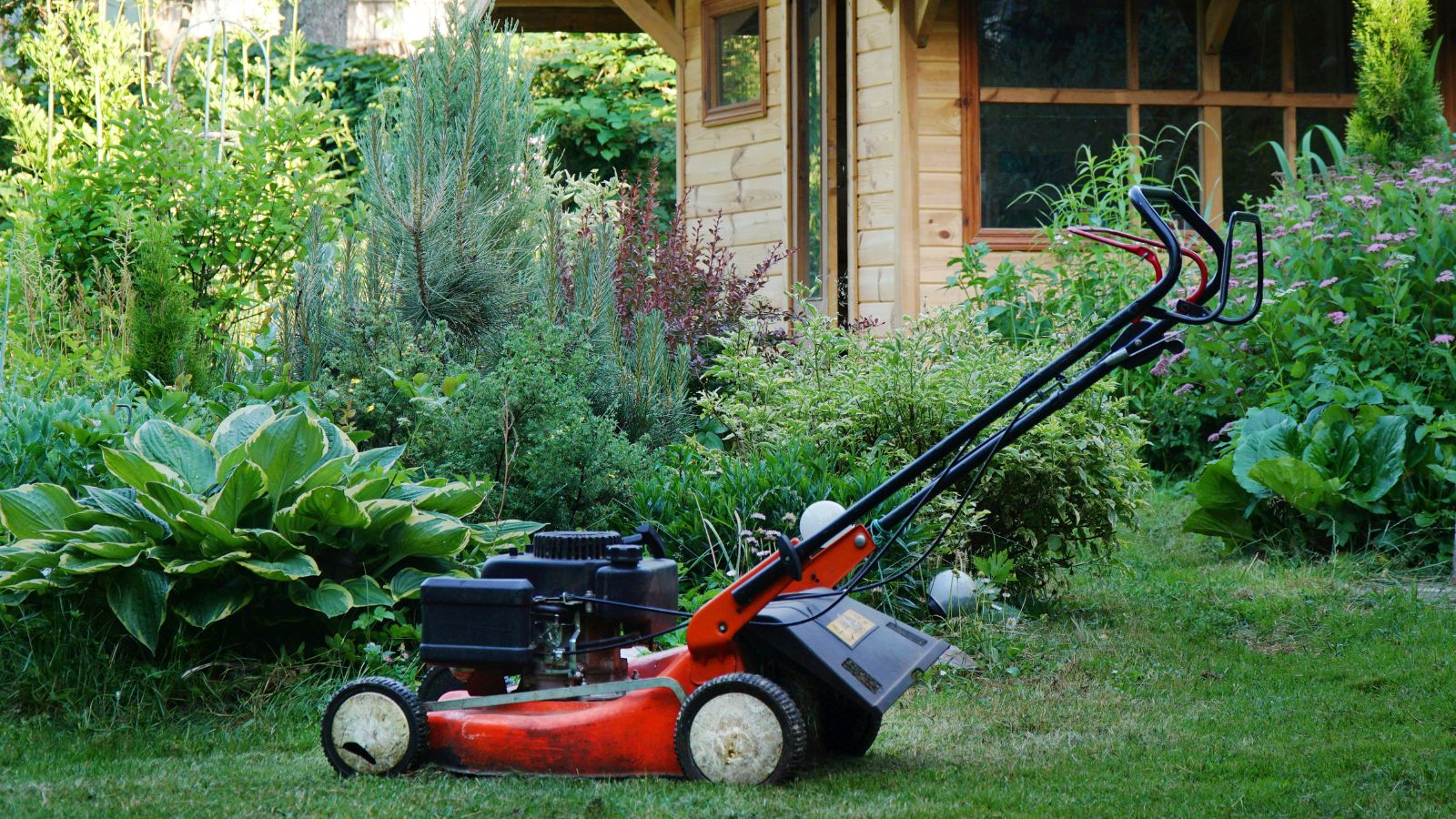
Design expertise in your inbox – from inspiring decorating ideas and beautiful celebrity homes to practical gardening advice and shopping round-ups.
You are now subscribed
Your newsletter sign-up was successful
Want to add more newsletters?

Twice a week
Homes&Gardens
The ultimate interior design resource from the world's leading experts - discover inspiring decorating ideas, color scheming know-how, garden inspiration and shopping expertise.

Once a week
In The Loop from Next In Design
Members of the Next in Design Circle will receive In the Loop, our weekly email filled with trade news, names to know and spotlight moments. Together we’re building a brighter design future.

Twice a week
Cucina
Whether you’re passionate about hosting exquisite dinners, experimenting with culinary trends, or perfecting your kitchen's design with timeless elegance and innovative functionality, this newsletter is here to inspire
If you want to improve your mowing game this spring, there's really only one question you need to ask: when it comes to gas mowers vs cordless mowers, which comes out on top?
As more and more companies shutter their gas mower production - and new gas mowers are banned in California - can new-fangled cordless mowers really compete with old-school gas mowers?
I've tested dozens of lawnmowers in my career, so I know exactly what makes for the best lawnmower. I also spoke to a landscaping expert for his advice on the benefits and drawbacks of both types of mowers.
What are the benefits of gas mowers?
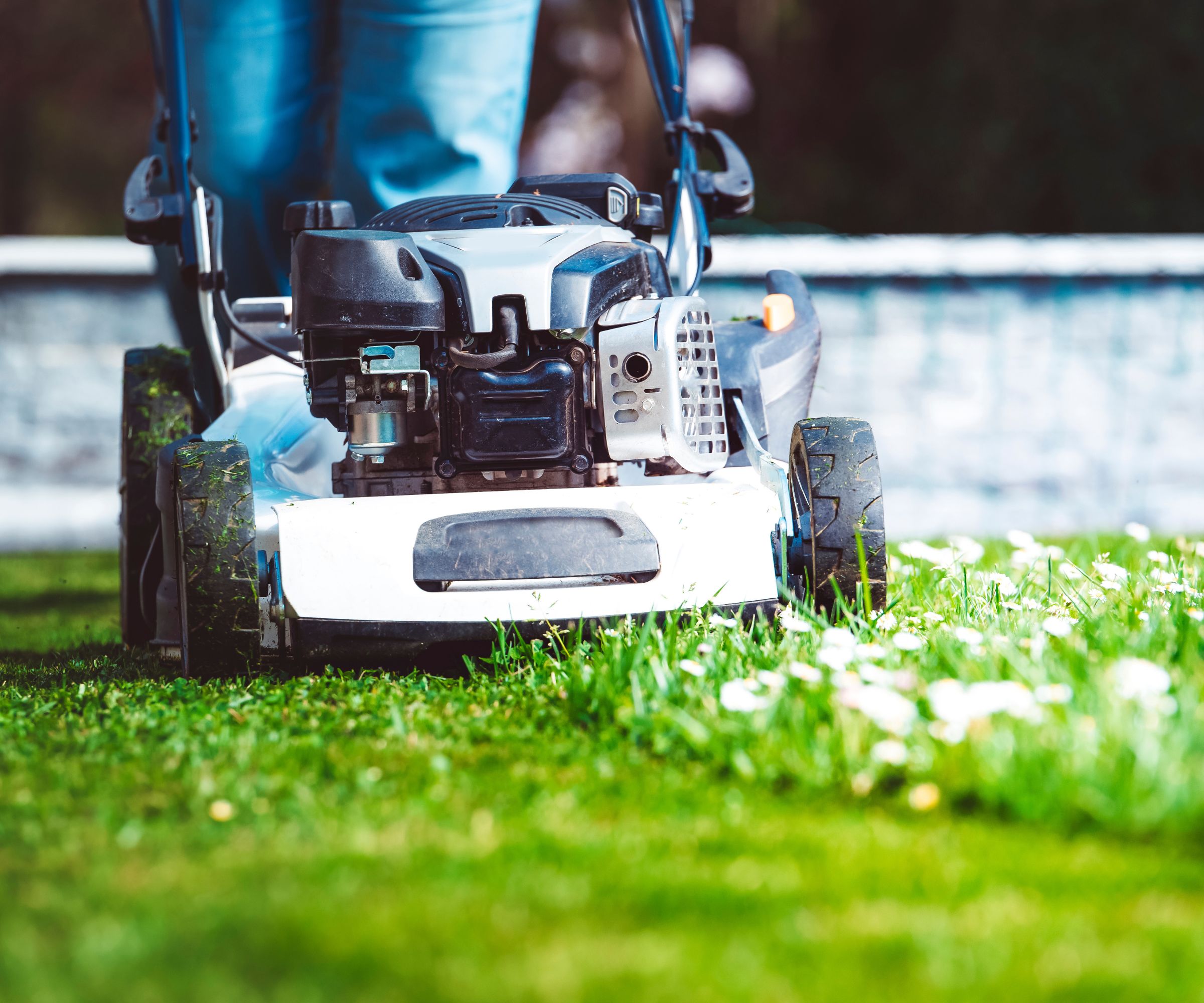
The biggest benefit is that gas mowers simply give a better cut than cordless mowers. It's a small difference, but in general gas mowers are more powerful and cut through grass more easily. Cordless mowers still do a great job, but gas mowers are more likely to give a clean cut, and they're better at taking on tall, thick grass.
Mowing expert Bryan Clayton told me that 'These bad boys are powerhouse performers. If you've got a large lawn or you're the type to let the grass get a bit tall between cuts, a gas mower won't let you down.'
Gas mowers don't have any issues with runtime. If you keep the fuel topped up, it will run indefinitely. This also means that gas mowers tend to be better for large lawns. While there's little difference on smaller lawns, gas mowers are better than cordless ones as acreage increases.
Gas mowers are also easier to DIY. Unlike gas mowers, anyone with a little mechanical knowledge can take a gas mower apart to troubleshoot issues. If your corded mower isn't working, it's much harder to tackle the electrics.
Design expertise in your inbox – from inspiring decorating ideas and beautiful celebrity homes to practical gardening advice and shopping round-ups.
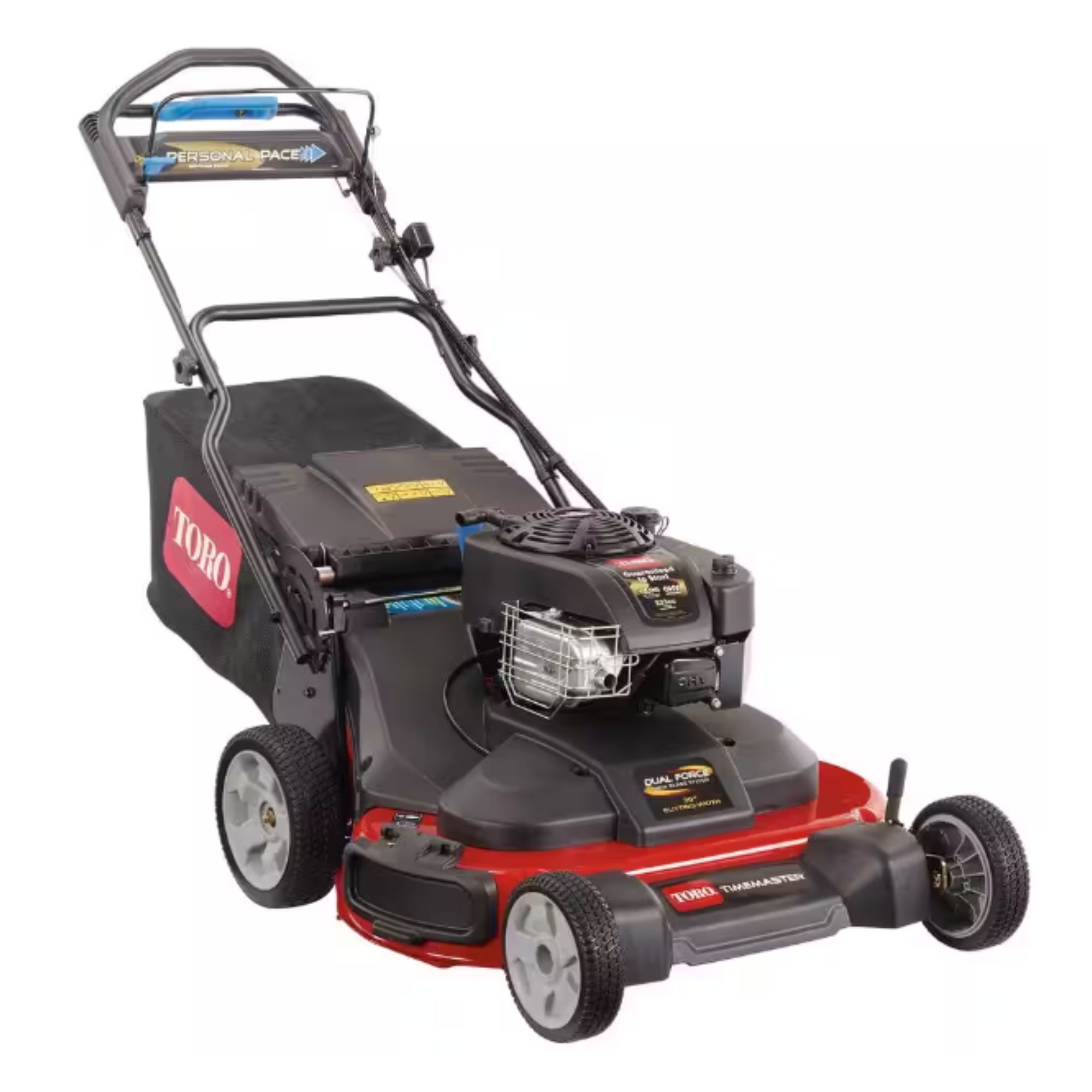
While I haven't tested this particular mower, every Toro product I've sampled is very high-quality. The parts that matter are all made with tough, thick steel. Best of all, this has a safety stop feature, which turns off the blades but not the motor, so you can step away from the mower if needed.

Bryan Clayton is a co-founder of GreenPal, an online platform that connects homeowners with local lawn care professionals. Born and raised in Nashville, Tennessee, Bryan developed an early interest in entrepreneurship and started his first business at the age of 13, mowing lawns in his neighborhood.
What are the drawbacks of a gas mower?
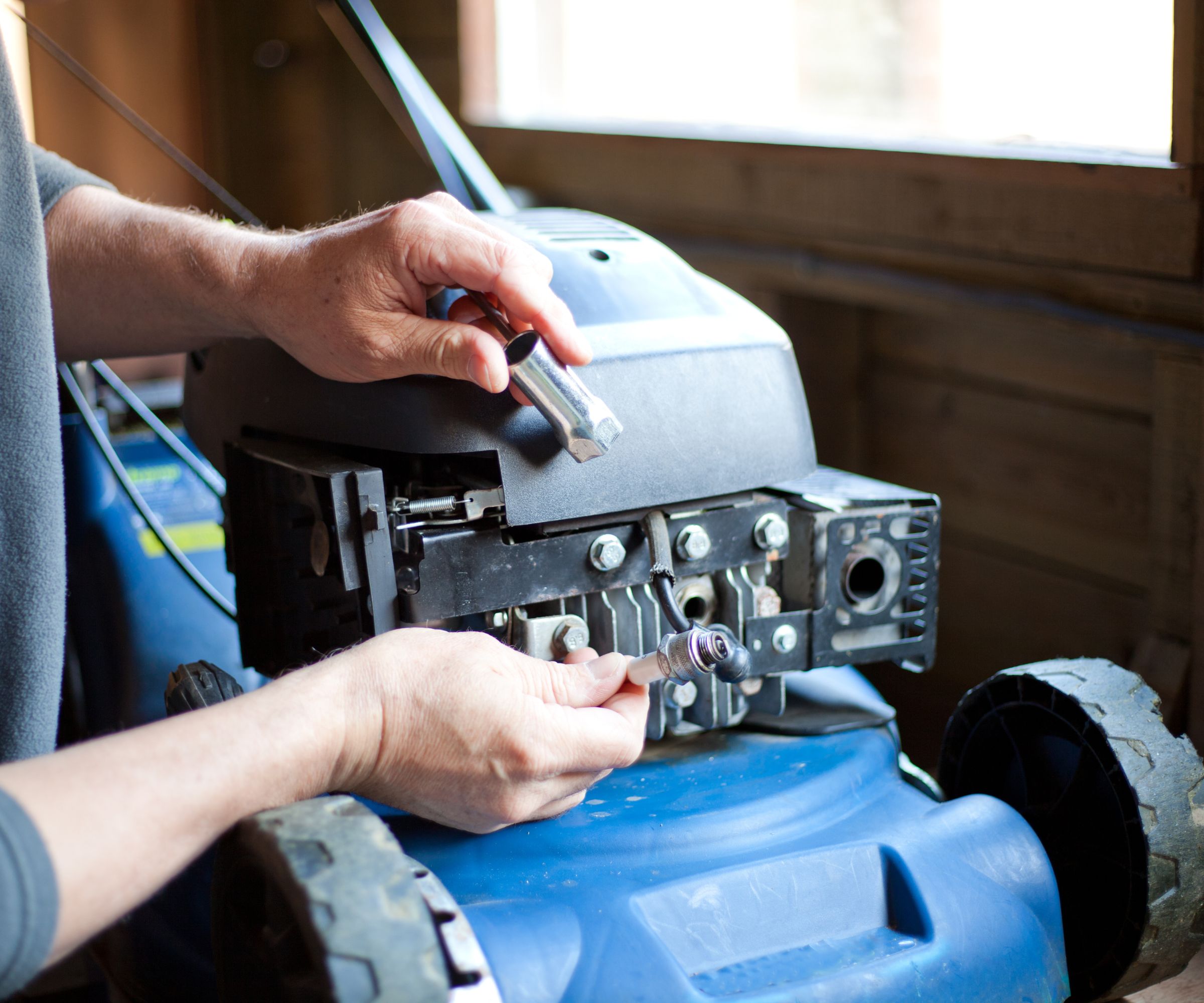
Gas mowers are pretty antisocial. Unlike cordless mowers, they're incredibly loud and emit foul-smelling gas fumes.
They also need a lot of maintenance. Storing gas safely takes a little effort, and gas goes bad over time, so you need to run your stocks down in the run-up to winter so that you aren't left with stale gasoline when spring returns the next year. That's before you get to the engine itself, which needs oil and filter changes, and spark plug checks.
Gas mowers are also subject to some political considerations. Many companies are slowly phasing out their gas mowers because gas mowers are more expensive to engineer and manufacture than cordless mowers. Because they're being phased out, you're less likely to find replacement parts when your mower is broken.
The other political consideration is that gas mowers are being phased out by law in some states. From January 1st 2024, small off-road engines (SOREs) must be 'zero-emission' in California. This essentially means a ban on new gas mowers, leaf blowers, and trimmers. If you live in California, you can't buy one of these mowers in the first place, and this policy may be picked up in other states.
This ban on gas mowers might even be local. Some HOAs don't allow gas mowers because of the noise and smell, so a big drawback of gas mowers is that you could buy one, move house a couple of years later, and then find that your $500 gas mower isn't allowed in your new neighborhood.
What are the benefits of a cordless mower?
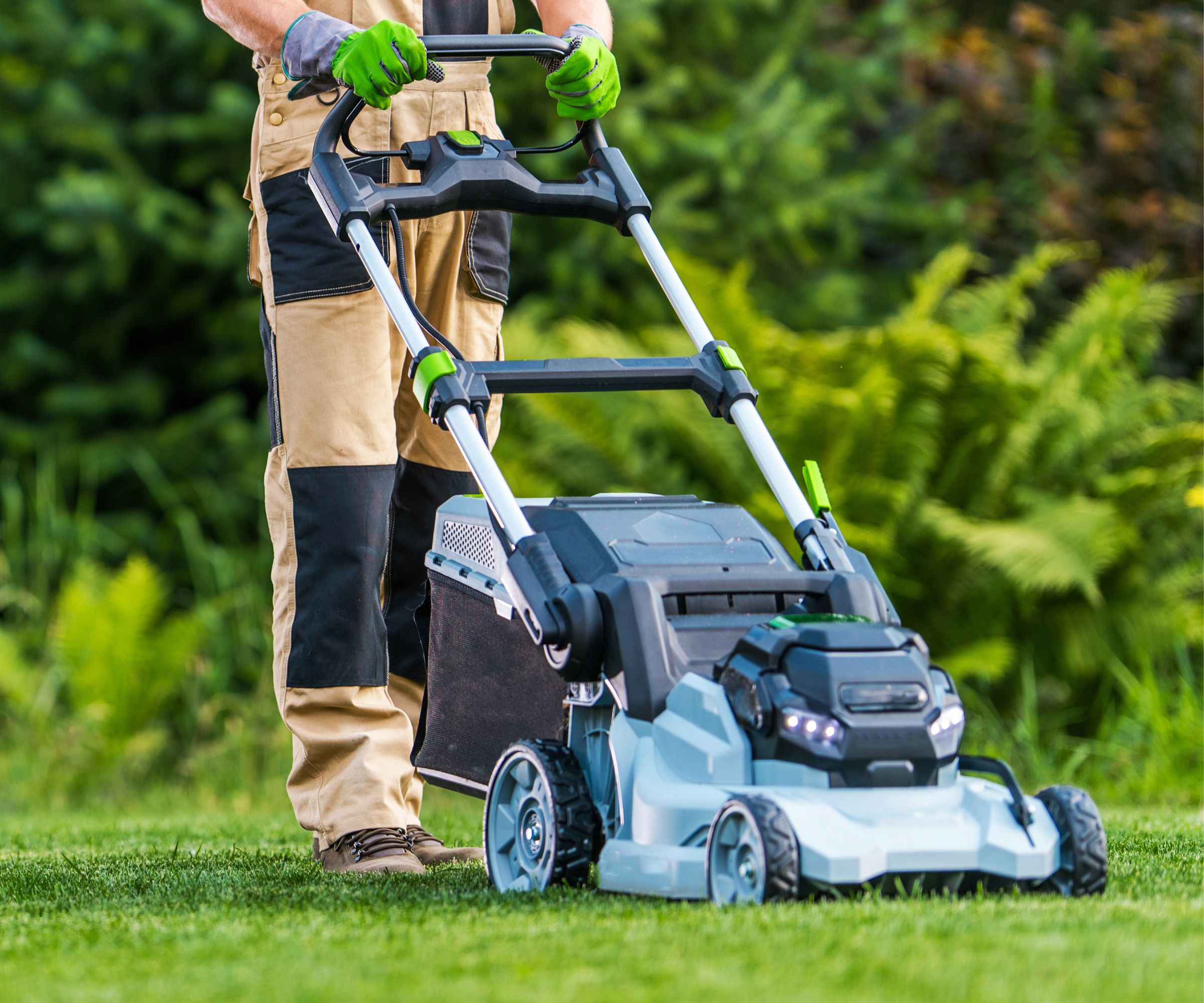
Cordless mowers are easy to use. Unlike gas mowers, which have the hassle of topping up with gas and pulling on a cord, cordless mowers start as soon as you press a button.
Because they have relatively tiny electric engines, cordless mowers are very lightweight. They're great if you're older or have mobility problems, because they tend to weigh half as much as a gas mower.
This same small engine means that cordless mowers are very quiet. Unlike gas mowers, which make a lot of noise, a cordless mower can be as quiet as an electric toothbrush.
Cordless mowers are also increasingly cheap. They used to cost a lot more than gas mowers, but now that lithium batteries are more common and cheaper to produce, they are cheaper than gas mowers because they have fewer metal parts.
You'll also see claims that cordless mowers are more eco-friendly than gas mowers. This is mostly true, but you should be a little skeptical. The claim is that gas mowers emit fewer greenhouses than gas mowers because they don't use gasoline. This is true, and in this sense, they are far greener than a gas mower.
However, most cordless mowers are assembled in China and shipped to the US. The lithium in their batteries is produced in Australia, Africa, and South America, often mined in unethical working conditions. Altogether, cordless mowers are much better for the planet than gas mowers, but don't be fooled that they're clean.
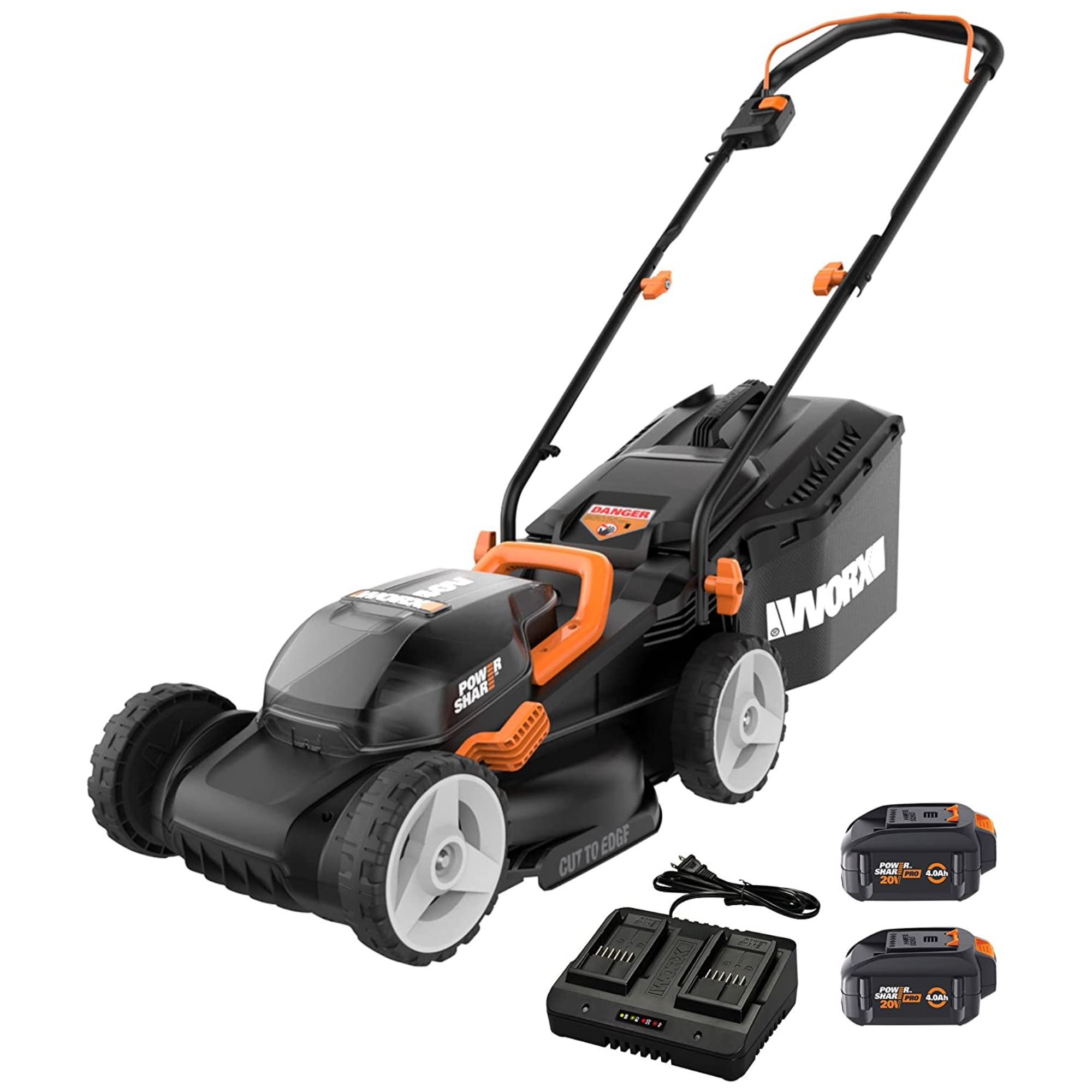
I constantly find myself recommending this mower. It's definitely not as good as a gas mower, but it's still extremely capable. It's incredibly light, mows right to the edge of a lawn, and has a pretty good runtime.
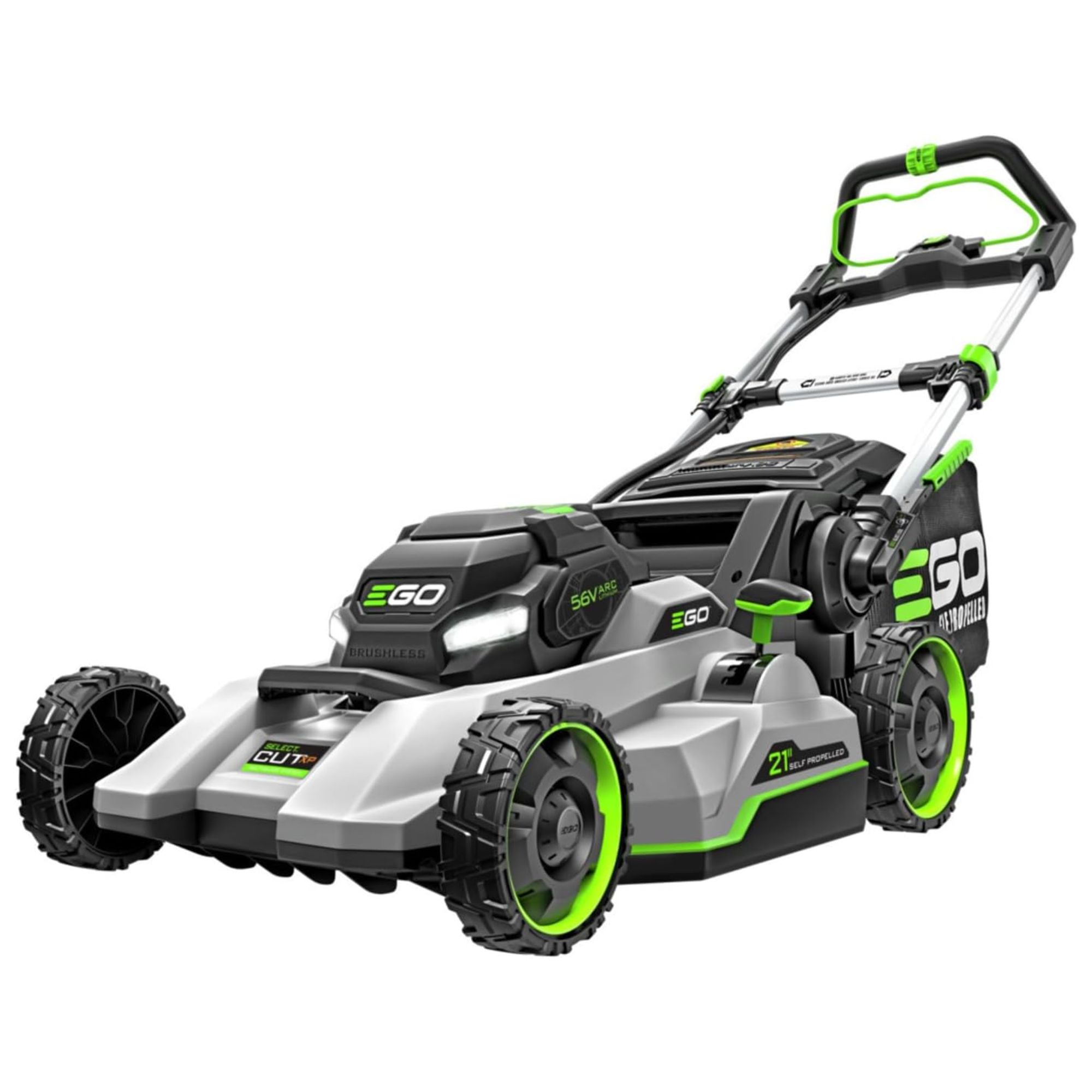
This is the best cordless push mower I've tried. This futuristic-looking mower has powerful self-propulsion, which makes mowing uphill easy. However, this is as much as I'd ever spend on an electric mower.
What are the drawbacks of a cordless mower?
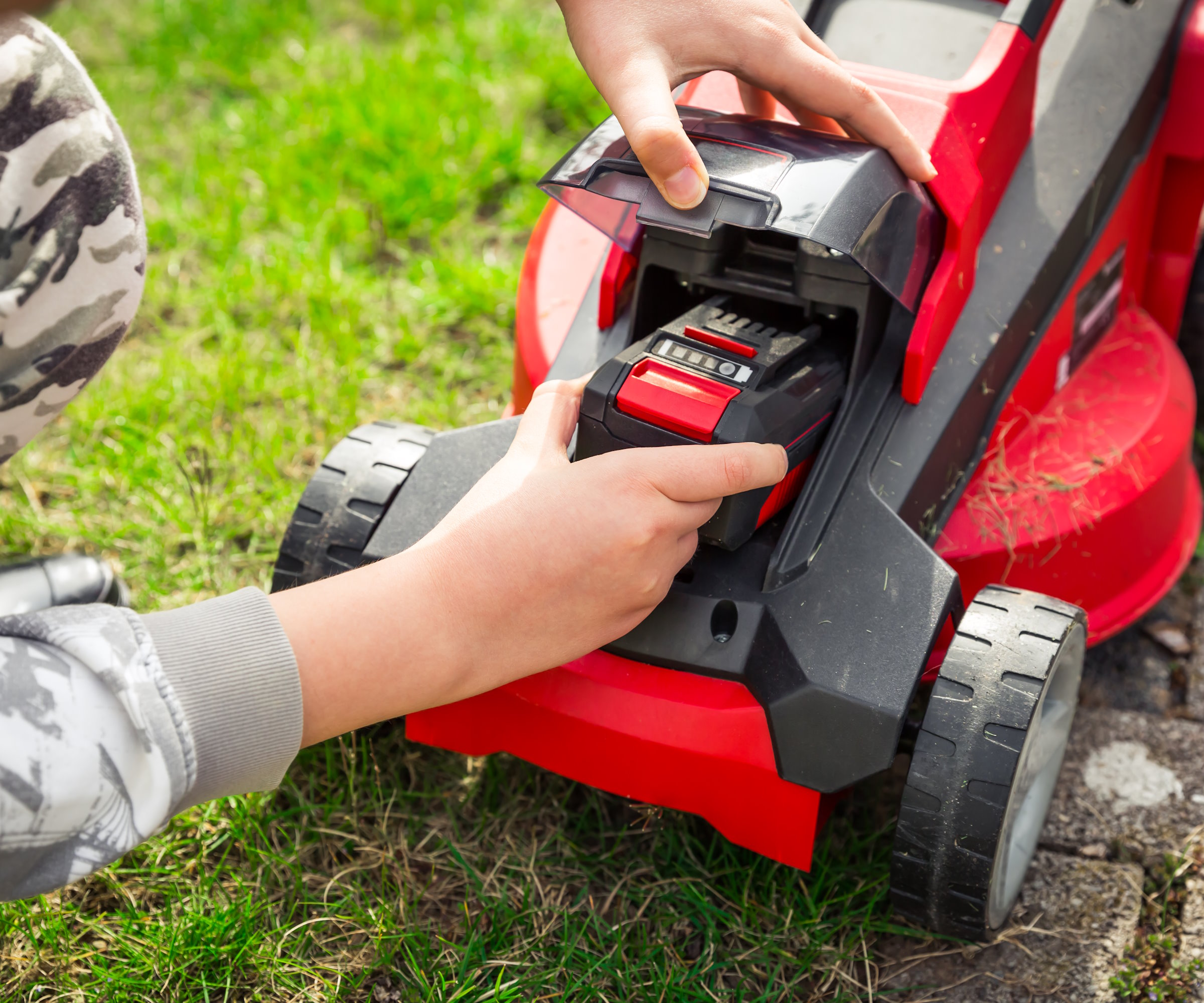
The big drawback with a cordless mower is that battery technology is far from perfect. Most cordless mowers top out at about 30-45 minutes. Lawn expert Bryan Clayton says that battery power is cordless mowers' biggest drawback. He says 'If you try tackling a jungle because you've skipped a few weeks, you might find yourself out of juice mid-mow.'
What's more, this battery power becomes worse over time. If you have a cordless vacuum, you probably know this effect. Lithium batteries – the most common type for cordless tech – lose capacity over time, so the runtime gets shorter and shorter over the years.
The other issue with batteries is simply keeping them charged. Not everyone has outlets in their shed or garage, so it's often tricky to remember to top up your mower batteries. Mower batteries become an extra thing to charge, which can be mildly frustrating to keep on top of.
Buy a gas mower if...
- You want the best possible cut
- You have a large lawn
Buy a cordless mower if...
- You have a small lawn
- You want a lightweight mower
- You want a simple mower
- You want a mower that won't disturb neighbors
If you're in the market for a new mower, it's worth considering how much you should spend on a lawnmower before you take the plunge.

As a gardens and lifestyle contributor, Alex makes sure readers find the right information to help them make the best purchase. Alex got his start in reviewing at the iconic Good Housekeeping Institute, testing a wide range of household products and appliances. He then moved to BBC Gardeners’ World Magazine, assessing gardening tools, machinery, and wildlife products.
